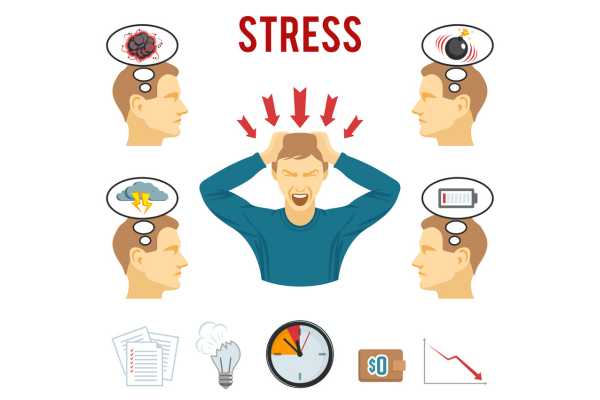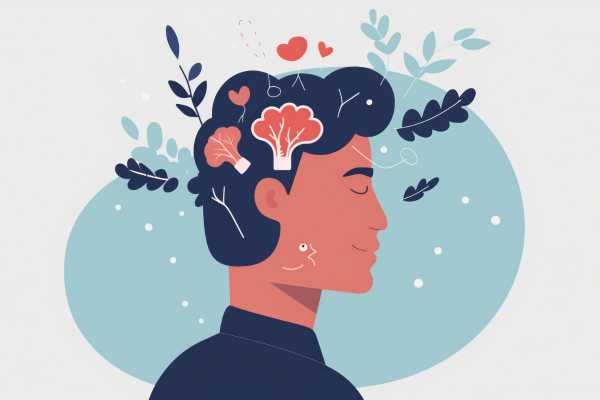“Do not anticipate trouble, or worry about what may never happen. Keep in the sunlight.”. ― Benjamin Franklin.
Stress is inevitable. It is a universal experience, affecting over one-third of people around the world today. Researchers suggest that everyone experiences stress in a lifetime, yet, few people know how to manage typical tension. This article will explore various ways to de-stressing – ways to addressing the mental health condition, stress.
Before getting started, let’s define stress and de-stressing.
What Is Stress?
Stress refers to any physical, emotional, or psychological strain that results from an individual body’s response to changes or challenges. Psychology defines stress as emotional pressure. Depending on the level of tension, stress can be beneficial or detrimental.
Stress level is commonly assessed by the Perceived Stress Scale (PSS). The psychological instrument, PSS, evaluates one’s perception, thoughts, and feelings toward stressors. A stressor is anything physical or condition that triggers stress.
What Are Triggers of Stress?
Various factors trigger stress. The typical stress triggers include self-evaluation, environmental changes, intolerance of uncertainty, physical health issues, traumatic experiences, and fear of the unknown. Note that different factors lead to a unique type of stress. These factors also influence the level of stress. Additionally, the stressor determines how individuals should deal with stress.
How To Deal with Stress
Although stress can seem to be an unprecedented and uncontrollable experience, it is surprisingly easy to cope with it. All that is needed is to identify stressors – note the cause of stress. Determining the cause of stress will help you establish the best way to beat it. There are various proven ways to dealing with psychological stress, namely, avoid, alter, adapt and accept (the 4As of stress management).
Avoid – after identifying stressors, you may decide to stay away from them.
Alter – sometimes, it may be challenging to avoid stressors. In such cases, you can try to adjust your environment.
Adapt – if you cannot alter or avoid the stressors, the best thing to do is adapt to the situation. Adjust yourself to fit in that stressful environment.
Accept – some stressors such as the death of a loved one, disability, or economic recession are over our power – we cannot control them. In that case, the best thing is to accept. You have to admit that something happened, and there is nothing you can do to change it.
Implementing one of the strategies of stress management will enable you to take control of your mental health.
What Is De-Stressing?
De-stressing is simply reverting stress. It is regulating distressing emotions and modifying how those emotions are expressed. In simple terms, de-stressing is performing particular practices that relieve stress and rejuvenate your mood and psyche. That is, inducing relaxation feelings into one’s body. While stress is any form of emotional, physical, and psychological distress, de-stressing relaxes body muscles (physical stress) and eases mental tension (psychological stress).
Why Is De-Stressing Important?
Various reasons explain why de-stressing is essential. Here are some of the primary reasons why de-stressing is highly recommendable.
- Improves mental and general physical health and wellbeing,
- Improves attention,
- Boosts productivity,
- Regulates negative emotions, and
- Enhances sociability and interactivity.
The effectiveness of de-stressing varies depending on the technique used. Most commonly implemented ways to de-stress have been proven to enhance the production of feel-good hormones, including dopamine, oxytocin, serotonin, and endorphins, which significantly influence mental health. Also, these chemicals have substantial impacts on general physical health.
Let’s now dive into discussing the 12 scientifically proven ways to de-stressing.
12 Techniques to De-Stress Yourself
1. Exercise
Exercising is the best way to de-stress and improve your overall physical health. Studies show that regular exercise improves mood and attention and increasing self-esteem, self-confidence, and self-love.
According to studies, exercise facilitates the production of endorphins and serotonin – mood-boosting chemicals.
Physical activities also help in losing weight and improving physical health, improving self-esteem, confidence and self-love. Thus, reducing stress and related mental conditions related to self-evaluation and self-criticism.
In addition to that, exercises influence blood flow, enabling a sufficient supply of nutrients and oxygen to the body organs, including the brain. This increases energy levels and reduces fatigue, burnout, and other physical strains. Also, adequate and steady blood flow reduces brain fog, improving attention. Research suggests that physical activities improve an individual’s energy level and reduce fatigue by 20% and 65%, respectively.
2. Herbal Supplements
Supplements are better alternatives for improving mental and physical health. Herbal supplements are proved to reduce stress symptoms significantly. Health experts suggest that supplements such as Rhodiola Rosea, Kava, Ashwagandha, among other herbal supplements, contain active compounds that boost sleep, reduce stress, and improve the body’s stress response system, promoting physical and mental stress resilience.
3. Visualize
Visualization is the other best way to de-stress, improve attention, mood, and psyche. In addition to that, visualization helps control typical health conditions such as blood pressure, boosts the immune system, enhances confidence, regulates stress and related mental disorders, and promotes stress resilience.
4. Dietary Balance
Balancing your diet is essential for both mental and physical health. Foods such as walnuts, oatmeal, blueberries, dark chocolate, and other brain foods are proven to contain crucial active compounds that facilitate the production of feel-good chemicals. Consuming sufficient nutrients helps in relieving stress. Additionally, incorporating the foods in your diet improves your brain health and boosts the stress response system.
5. De-cluttering your Mind
Mental clutter is one of the primary causes of typical stress. Mental clutter may include excessive information, worrying, anticipations, among other thoughts clouding the brain. Keeping mind clutter results in a mental fog, stress, anxiety, and other related cognitive health conditions.
Mental de-cluttering involves.
- Limiting information intake – Switch off your phone, avoid news sources, social media, reading and other informational sources,
- Journaling – write down your to-do-list and other valuable information,
- Let go of the past,
- Avoid multitasking and focus on priorities, and
- Organize or de-clutter your environment.
De-cluttering relieves stress and boosts attention, mood, and psyche.
6. Do What you Love
Engaging with your interests is one of the most executed strategies for de-stressing. Research suggests that doing what you love has a significant impact on your mental wellness. It rejuvenates your mood significantly and brings happiness.
Happiness improves physical, emotional, and social wellbeing. It builds an individual’s social and emotional attributes, boosts the immune system, relaxes the body, and relieves mental and physical tension and pain. Research suggests that a moment of happiness can relax your muscles for over 45 minutes.
7. Counseling
Engaging in counseling sessions is one of the highly recommendable strategies for relieving stress and other psychological conditions. Interacting with a psychiatrist helps in alleviating severe stress. Counseling focuses chiefly on a specific stressor. It is a fast and efficient way to relieve short-term stress. During counseling, the psychiatrist helps you work out the troubling issues to define the healthiest strategies to cope with stressors.
8. Change your Environment
Changing your environment is equally or more effective than any other way of de-stressing we have discussed in this article. By changing your environment, we refer to leaving your current setting to interact with an entirely different environment. Here, the idea is to escape stressors and engaging with new soothing experiences.
Nature is one of the best environs you can escape to. Several studies conclude that natural features such as plants, water, rocks, and others induce relaxation responses. Also, the natural environment regulates ordinary physical health conditions such as blood pressure.
9. Talk Therapy
Talk therapy, also known as psychotherapy, refers to any form of psychological treatment involving interactive communication between mentally ill individuals and psychiatrists. Psychotherapy aims to manipulate individuals’ beliefs, ideas, or perceptions toward particular challenges helping them accept and adapt to the current situation. It is an efficient way to alleviate chronic stress and other mental conditions.
While there are a dozen talk therapies you can use to de-stress, it is recommendable to explore several types and determine one that suits you best. Your therapist should help you in choosing the best.
The common types of psychotherapies suitable for relieving stress include cognitive-behavioral therapy (CBT), dialectical behavior therapy (DBT), acceptance and commitment therapy (ACT), humanistic therapy, and psychodynamic therapy.
10. Socialize
Socializing is a highly recommendable way to de-stress. It is as effective as doing what you love. Additionally, socializing strengthens your bond with your loved ones and brings a sense of love. According to psychology experts, love facilitates the production and oxytocin and dopamine chemicals, improving your mood and boosting the stress response system.
Research also shows that love feeling lowers stress hormones such as cortisol.
Additionally, more studies conclude that socializing with pets also has a significant impact on mental health.
11. Relaxation techniques
Practicing relaxation techniques such as meditation, tai chi, yoga, and others is also a better alternative for de-stressing. Other relaxation methods include listening to music and waterfall or natural sounds. The techniques help to relieve both mental and physical strains. Most relaxation techniques involve slow controlled breathing accompanied by body movements or visualization. According to experts, relaxation techniques improve blood flow and oxygen intake, boosting heart and other body organs’ health. Also, the methods improve attention, mood, and cognitive abilities.
12. Alternative therapies
Alternative therapies, also known as alternative medicine, refer to usual or non-conventional practices and techniques that relieve stress and other mental conditions. The methods include treatments such as immersion therapy, acupuncture, massage, among other therapeutic procedures.
The techniques are believed to reduce psychological stress efficiently and enhance body relaxation significantly.
Takeaway
Stress is one of the typical mental conditions today. It is one of the leading causes of the recent prevalence of other mental illnesses such as depression and substance use disorder. Chronic stress also increases risks of physical conditions such as blood pressure and heart rates and alleviates health issues complications. Therefore, knowing how to relieve stress is highly recommendable for your general health and wellbeing. For successful de-stress, you have to identify and avoid unhealthy habits and lifestyles such as drug use, overworking, consuming high levels of caffeine, among other harmful practices.
References-
20 scientifically backed ways to de-stress right now. (2017, December 7). HuffPost. https://www.huffpost.com/entry/stress-relief-that-works_n_3842511
6 natural ways to de-stress. (2015, April 28). Psychology Today. https://www.psychologytoday.com/intl/blog/hope-relationships/201504/6-natural-ways-de-stress
Rampton, J. (n.d.). 25 simple and proven ways to de-stress. Entrepreneur. https://www.entrepreneur.com/article/296344




















